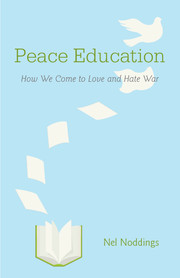9 - Existential Meaning
Published online by Cambridge University Press: 05 December 2011
Summary
Human beings seem to need a deep and dependable source of meaning in their lives. When we speak of existential meaning, we are not talking about looking up definitions in the dictionary. Existential meaning affects every aspect of our being – what we believe, how we treat others, what we love, how we live. In discussing the dominant anxieties suffered by human beings, as noted in the chapter on religion, Paul Tillich has argued that the anxiety of meaninglessness has been the major category of anxiety in modern times. Without meaning in our lives, we experience a feeling of emptiness. The feeling may come and go. Meaning may rise and provide stability, and then it may disappear, leaving us empty again.
In earlier chapters, we have seen that war has frequently been a source of meaning in human lives. It has been supported by religion, patriotism, and the desire to participate in something larger than personal life. But what other sources of meaning have been shut off or quieted when war takes over? Is everyday life without meaning? Is it fundamentally boring? Or is the home so filled with meaning, so precious, that we are willing to fight if we believe it is threatened? We will see that both conditions send people to war.
Information
- Type
- Chapter
- Information
- Peace EducationHow We Come to Love and Hate War, pp. 125 - 138Publisher: Cambridge University PressPrint publication year: 2011
